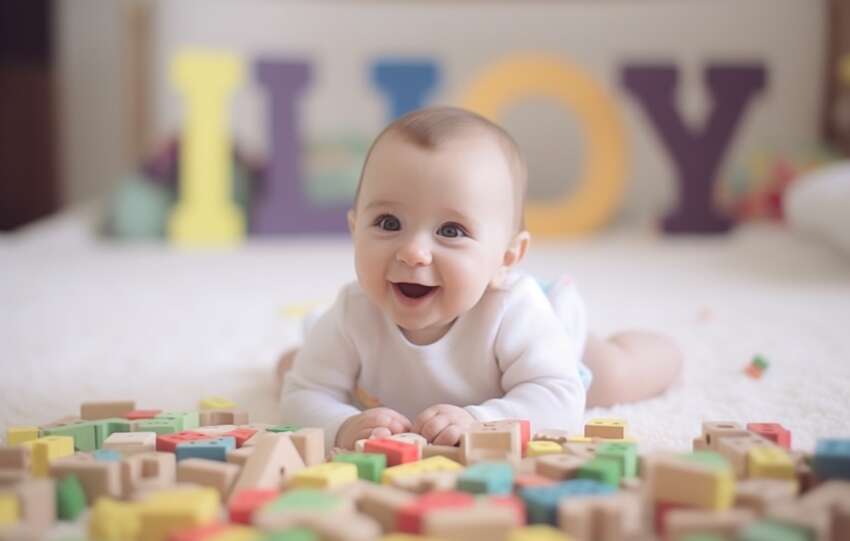
As a new parent, you’re probably receiving plenty of advice, tips, and enduring myths about raising your little one. From the claim that honey pacifiers ease teething pain to the suggestion that baby walkers help your baby take their first steps, it’s easy to feel overwhelmed. So, let’s simplify things and debunk some of these common baby myths with evidence-based facts.
Baby walkers help babies walk
Contrary to what you might have heard, baby walkers don’t aid your baby’s walking development. Research suggests that babies using walkers may actually start walking later than those who don’t. The American Academy of Pediatrics advises against walkers due to possible delays in walking and potential safety hazards, like falls.
Picking up a crying baby will spoil them
The idea that comforting a crying baby leads to spoiling is unfounded. In the early months, calming your distressed baby helps them develop crucial life skills. Don’t hesitate to offer the comfort they need. Of course, this doesn’t mean catering to every demand as they get older!
Putting honey on a pacifier will help with teething
This advice is not only false but also harmful. Babies under one year should not consume honey due to the risk of botulism, a potentially life-threatening condition.
Babies who walk and talk early are the brightest of their peer group
Early walking or talking isn’t a surefire indicator of high intelligence or future academic success. While early talkers might develop superior language skills, it doesn’t diminish the potential of late talkers. Similarly, although delayed motor skills should be discussed with a pediatrician, an early walker isn’t necessarily destined for academic excellence.
Never wake a sleeping baby
While this advice seems reasonable, it’s crucial to wake newborns every three to four hours for feedings. As your baby grows, you can let them sleep for extended periods. Knowing this baby myth will help your little one to grow faster.
Lullabies help babies sleep
Lullabies might not magically lull your baby to sleep, but singing to them can have a soothing effect on both you and your little one. It may not guarantee sleep, but it can help calm your baby.
“Naps aren’t necessary” baby myth
Naps are vital, especially during your baby’s first year. Skipping naps hoping for a longer night’s sleep can result in an overtired, irritable baby. Regular naps support learning, behavior regulation, and overall sleep patterns.
Babies should be sleeping through the night by three months
Although this might be your dream, it’s perfectly normal if your baby isn’t sleeping through the night at this age. Infants may still need nighttime feedings, and each baby’s sleep pattern is unique, making comparisons unhelpful and inaccurate.
Certain toys will make babies smarter
Toys alone won’t enhance your baby’s intelligence. It’s your interaction with your baby during playtime that truly counts. Communicating meaningfully, describing the toys, and fostering their curiosity can significantly benefit their development.
Bouncing babies will cause them to be bowlegged
There’s no truth in this myth. Babies often have their legs crossed in the womb, making them look bowlegged after birth, but this corrects itself over time. Standing and weight-bearing activities are excellent for their motor development.
Exposure to cold air can cause colds
You might have heard that being exposed to cold air can give you a cold. However, the truth is, colds are caused by viruses, not by the cold weather itself. While cold weather could indirectly increase the chances of getting a cold by leading people to stay indoors more (where viruses can spread more easily), it’s not the cold air itself that makes you sick.
Babies need water in addition to breast milk or formula
Contrary to this belief, breast milk or formula provides all the hydration your baby needs for their first six months. Giving your baby water might fill up their small stomach, leaving less room for the nutrient-dense milk and potentially leading to malnutrition.
Reading to babies is useless as they don’t understand
It’s not true that reading to babies is pointless just because they can’t comprehend the words yet. When you read to them, they are picking up on the rhythm and tones of your voice, which is beneficial for their brain development and language skills. Plus, it’s a wonderful opportunity to bond with your child.
Teething can cause fevers
The belief that “Teething can cause fevers” isn’t quite right. While teething could make your baby more irritable or even slightly affect their appetite, it’s not expected to lead to a fever, cough, runny nose, or vomiting. If your baby shows any of these symptoms, it could be a sign of an infection or some other medical issue. Therefore, if your baby develops a fever, it’s advisable to reach out to a pediatrician to find out the reason.
Baby Myths debunked
Parenting involves navigating a maze of complexities and uncertainties. It’s absolutely normal for you to have numerous questions and concerns. Remember, every baby is unique, and what works for one might not work for the other. Whenever you’re unsure, it’s always best to consult a healthcare provider.
Olivia S
As an experienced writer and mother, I've discovered my true passion lies in the world of parenting. I understand firsthand the challenges and joys of raising children, and I'm committed to sharing my experiences and insights with other parents. With my degree in English and years of experience as a freelance writer, I've developed my unique writing voice that resonates with my readers. My approach to writing is warm and compassionate, and I aim to provide practical advice and support to parents navigating the ups and downs of parenthood. Whether I'm sharing tips on sleep training or exploring the latest trends in children's education, I write from the heart and strive to create informative and engaging content.



